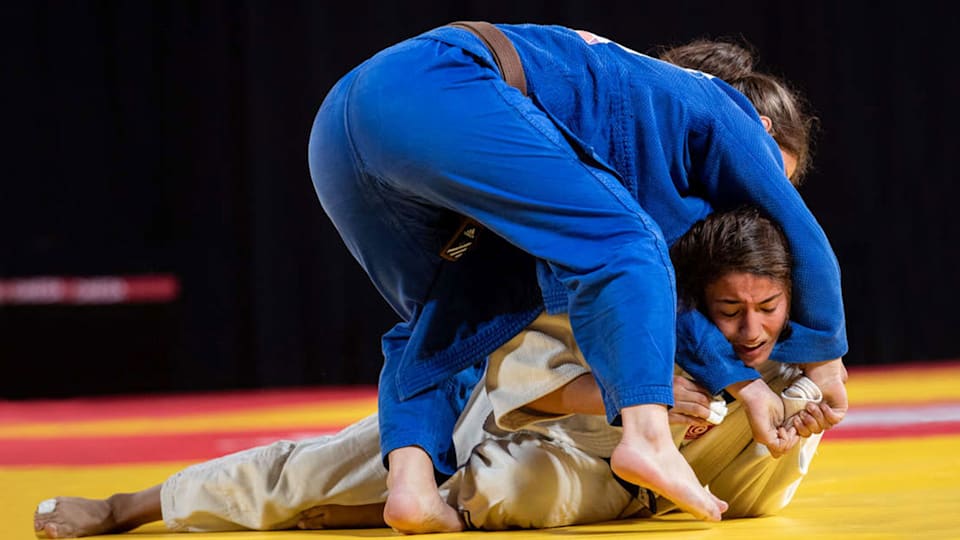
For Mariem Khlifi (TUN), the road to a Youth Olympic Games judo medal began long ago on the dusty streets of Kairouan, a city in northern Tunisia.
It was there that Khlifi, who won silver in the women’s -63kg category on Monday, first discovered an aptitude for judo through the playfights that are characteristic of a Tunisian childhood. “With Tunisian children, the girls are not girly,” Khlifi said. “They love to fight with boys, play with boys, to be equal. We think that if we do things like the boys, we can be like the boys. So playfights are common, it’s something we do when we’re little.
“We will go to each other’s houses or to the streets, play with the other kids, and finish with a fight. Not punching, but always wrestling. We’ll often hurt each other, which causes problems, and the parents can get really mad at the end, but it’s cool, this is how we are. When I was little, I made a lot of fights and caused a lot of problems.”
Such playfights often served as light relief from the real violence breaking out on the streets of Kairouan in the aftermath of the Arab Spring revolution (first called the Jasmine Revolution in Tunisia), which began in late 2010, when Khlifi was just nine. “During the revolution, in Kairouan, people were stealing things from shops, houses and cars were being burnt to the ground. But it was like that in every city,” she said. “We were scared but we tried to continue living normally. The worst things happened in the south of Tunisia.”
As with her coach Houda Miled (TUN) many years earlier, Khlifi’s love of fighting saw her automatically drawn into judo. “In Kairouan, football is the most popular sport, but then it’s judo second, above swimming, tennis, anything else,” Miled said. “Other fighting sports like wrestling or boxing don’t really exist in Kairouan, so if you get into a lot of fights when you’re young, your parents will automatically say, ‘OK, you’re going to do judo.’ Because of this, there’s always been a lot of girls who have done judo in the city, and it’s why we have had a lot of champions.”
One day Khlifi hopes to emulate her coach who won a medal at the 2009 World Judo Championships. At Buenos Aires YOG, Khlifi fell just short of gold, losing to Hungary’s Szofi Ozbas in the gold medal match. But there is hope she can enjoy success at the senior level.
“Mariem can become world champion,” said Miled. “But she needs more experience and to fight more girls from Europe and elsewhere to learn from them.”
In the other events at the Youth Olympic Park’s Asia Pavilion on Monday, Adrian Sulca (ROU) took gold in the men’s -81kg category, while Irena Khubulova (RUS) triumphed in the women’s -52kg category.
